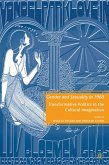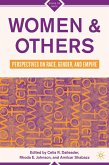This text offers a new interpretation of the dramatic changes that occurred in women in medicine over the course of the last seventy years, starting from the 1950s when women physicians were a curiosity to the present day when their presence is accepted and their achievements are broadly acknowledged. In seven chapters arranged by decades, this book examines the seminal events that shaped what has been described as "the changing face of medicine." Using the lived experiences of women physicians featured as vignettes throughout the narrative, the book traces the effects of the quota system for admissions, second wave feminism and Title IX legislation, the restrictions of the "glass ceiling," and a cascade of "equity issues" in career advancement and salary to offer a new account of the roles women played in shaping the standards and the contributing to progress in the field of medicine. Women faced gender specific challenges to enter, train and practice medicine that did not abate as they strove to balance work and family. As the book shows, such challenges and the attendant institutional responses offered by medical schools and government rulings shaped how women "do" medicine differently. Women and the Practice of Medicine offers a unique interpretation of this history and accounts for the changes in social norms as well as in women's perspectives that have made them an invaluable "new normal" in the contemporary world of medicine.
This book fills a gap in the more recent history of women in medicine, much of which is written by academic historians or sociologists; this book contributes a clinician's "on the ground" point of view. It includes a researched, structured historical narrative spanning the last 70 years, but it seeks to frame this narrative with the personal stories and accomplishments of women physicians who lived through the time in question. The book also provides an overview of how much has changed in the practice of medicine aswell as a reminder of what has not changed and what needs to further evolve for women to be equitable partners in medicine as well as other professional disciplines.
The book concludes with two appendices containing a questionnaire used in interviews of 40 women conducted at the start of the book project, and a summary of the qualitative findings from the semi-structured interviews.
Hinweis: Dieser Artikel kann nur an eine deutsche Lieferadresse ausgeliefert werden.
This book fills a gap in the more recent history of women in medicine, much of which is written by academic historians or sociologists; this book contributes a clinician's "on the ground" point of view. It includes a researched, structured historical narrative spanning the last 70 years, but it seeks to frame this narrative with the personal stories and accomplishments of women physicians who lived through the time in question. The book also provides an overview of how much has changed in the practice of medicine aswell as a reminder of what has not changed and what needs to further evolve for women to be equitable partners in medicine as well as other professional disciplines.
The book concludes with two appendices containing a questionnaire used in interviews of 40 women conducted at the start of the book project, and a summary of the qualitative findings from the semi-structured interviews.
Hinweis: Dieser Artikel kann nur an eine deutsche Lieferadresse ausgeliefert werden.








